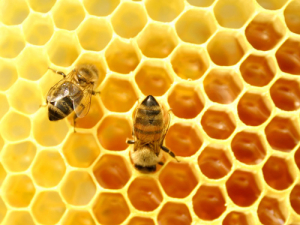Naki unveils the world’s most expensive manuka honey
Naki Honey, a New Zealand manuka apiary company, has crafted what is believed to be the world's most expensive honey.
 The campaign highlights the need for farmers and beekeepers to work together to manage the use of agrichemicals near hives.
The campaign highlights the need for farmers and beekeepers to work together to manage the use of agrichemicals near hives.
Agcarm and Apiculture New Zealand have started a campaign to raise awareness of the importance of keeping bees safe by using agrichemicals responsibly.
The campaign began in September to highlight the need for farmers and beekeepers to work together to manage the use of agrichemicals near hives.
A flyer and poster have been produced on protecting bees from unintended agrichemical exposure and tips on reducing risks to bees. Bees are extremely good crop pollinators, so contribute substantially to New Zealand’s multibillion dollar agricultural economy.
Agrichemicals are also vital for ensuring the security of New Zealand’s food supply and, when used responsibly, pose no threat to our bee population.
Agcarm chief executive Mark Ross says, “It’s important that we remain vigilant and address any potential risks to our bees. We need to work together to ensure the coexistence of two of New Zealand’s most important industries.”
Rural retailers are backing the bee safety message and the posters and flyers are displayed in some Farmlands stores.
Legal controls on the movement of fruits and vegetables are now in place in Auckland’s Mt Roskill suburb, says Biosecurity New Zealand Commissioner North Mike Inglis.
Arable growers worried that some weeds in their crops may have developed herbicide resistance can now get the suspected plants tested for free.
Fruit growers and exporters are worried following the discovery of a male Queensland fruit fly in Auckland this week.
Dairy prices have jumped in the overnight Global Dairy Trade (GDT) auction, breaking a five-month negative streak.
Alliance Group chief executive Willie Wiese is leaving the company after three years in the role.
A booklet produced in 2025 by the Rotoiti 15 trust, Department of Conservation and Scion – now part of the Bioeconomy Science Institute – aims to help people identify insect pests and diseases.

OPINION: The release of the Natural Environment Bill and Planning Bill to replace the Resource Management Act is a red-letter day…
OPINION: Federated Farmers has launched a new campaign, swapping ‘The Twelve Days of Christmas’ for ‘The Twelve Pests of Christmas’ to…